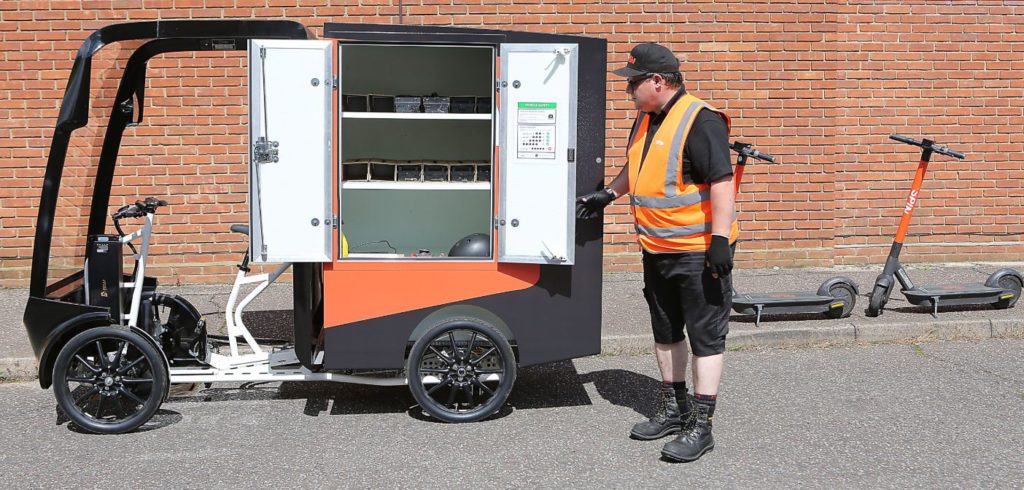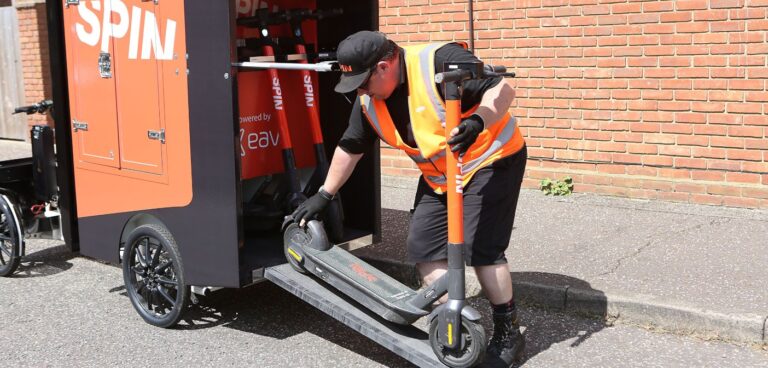Spin, the micromobility unit of Ford, is investing in two new e-cargo bike trials in Essex, UK, to support the company’s push to become carbon negative by 2025.
In Colchester, working with a new local community-based initiative – the Colchester E-Cargo Bike Delivery Project – Spin is trialling an e-cargo bike delivery service to replace and recharge drained e-scooter batteries.
In Chelmsford, Spin will trial the UK’s first custom-made, ultra-lightweight vehicle for e-scooter operators, the EAV 2Charge, which Spin co-designed with EAV Transport Solutions to provide greener logistics for e-scooter distribution and battery exchanges.
“E-cargo bikes have the potential to deliver faster, cut congestion and improve road safety in urban areas when compared to vans,” said Steve Pyer, UK country manager at Spin.
“That’s why we have integrated e-cargo bikes into our daily operations when it comes to replacing batteries and moving around e-scooters to meet local demand as it fluctuates throughout the day.”
Launched earlier this year during lockdown, the Colchester E-Cargo Bike Delivery service supports a range of local independent businesses, and now Spin, with a zero-emission delivery service utilising e-cargo bikes.

Through the initial three-month trial Colchester E-Cargo Bike Delivery Project will replace approximately 20-30 low charged batteries a day across Colchester and take them to be charged at various points across the town, while they are running deliveries for other customers with four e-cargo bikes.
With this trial, Spin aims to reduce the use of its vans on the road to help mitigate congestion in the local area.
In Chelmsford, Essex, Spin will deploy the EAV 2Charge e-cargo bike to help ease traffic and support cleaner air. The vehicle has been designed to carry spare batteries, tools, replacement parts and hold up to three e-scooters as the operations team pedals them around to meet changing demand across Chelmsford.
In the UK, Spin is currently using totally renewable energy in its warehouses. Additionally, it is in the process of electrifying its operations vehicles by introducing full-sized electric vans in all its UK locations to complement the e-cargo bike initiatives and enable more sustainable and efficient operations.
A recent study in London showed that cargo bikes deliver about 60% faster than vans in urban areas while they also delivered more parcels per hour compared to delivering by vans.





